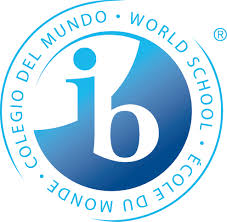Enroll today. Limited places available!

Unlocking the Benefits
In the ever-changing landscape of education, schools are continuously striving to adopt innovative approaches that go beyond traditional teaching methods. WABE International School, a prime example of a modern educational institution, recognizes the need for holistic development and equipping students with the skills required to thrive in the 21st century. To achieve these goals, two powerful educational frameworks, namely project-based learning (PBL) and social-emotional learning (SEL), have emerged as transformative tools.
Project-based learning emphasizes a hands-on, experiential approach to education. It encourages students to delve into real-world problems and challenges, engaging them in active learning experiences. Through PBL, students work on projects that require them to apply their knowledge, research, analyze data, collaborate with peers, and present their findings. This approach fosters critical thinking, problem-solving skills, creativity, and effective communication, all of which are vital for success in today’s dynamic world.
On the other hand, social-emotional learning focuses on nurturing students‘ emotional well-being, empathy, and interpersonal skills. SEL encompasses the development of self-awareness, self-management, social awareness, relationship skills, and responsible decision-making. It recognizes the importance of emotional intelligence in building healthy relationships, managing conflicts, and making ethical choices. By incorporating SEL into the educational framework, schools aim to create a supportive and inclusive environment that nurtures students‘ overall well-being.
When project-based learning and social-emotional learning are integrated, a synergistic learning environment is created. Students engage in collaborative projects that not only promote academic growth but also address social and emotional aspects. The combination allows students to develop a deep understanding of content while simultaneously honing their social skills, emotional intelligence, and empathy. By working together on meaningful projects, students learn to communicate effectively, resolve conflicts, and appreciate diverse perspectives.
The integration of PBL and SEL also prepares students for a future where adaptability and empathy are crucial. In an increasingly interconnected and rapidly changing world, individuals must be adaptable to new situations and empathetic towards others. By engaging in project-based learning experiences that emphasize real-world problem-solving, students become accustomed to navigating complex challenges and adapting to different contexts. Meanwhile, social-emotional learning equips them with the emotional intelligence and empathy necessary to understand and connect with diverse individuals and communities.
In conclusion, the integration of project-based learning with social-emotional learning offers numerous benefits for students. It creates a dynamic and synergistic learning environment that promotes academic growth, critical thinking, collaboration, emotional well-being, and empathy. By combining these two educational frameworks, schools like WABE International School are preparing students for a future where adaptability and empathy are essential skills. This holistic approach equips students with the necessary tools to thrive in the ever-evolving landscape of the 21st century.
Project-based learning is an educational methodology that emphasizes hands-on, student-centered activities and projects. Instead of relying solely on traditional lectures and exams, PBL engages students in authentic, real-world problem-solving experiences. Students investigate, inquire, and collaborate to develop deeper understanding and practical skills. PBL promotes critical thinking, creativity, communication, and collaboration, which are vital competencies for success in the modern world.
Social-emotional learning focuses on cultivating students‘ emotional intelligence and interpersonal skills. It nurtures self-awareness, self-management, social awareness, relationship skills, and responsible decision-making. SEL equips students with the ability to recognize and manage their emotions effectively, empathize with others, build healthy relationships, and make responsible choices. These skills are fundamental for personal growth, well-being, and positive social interactions.
The Power of Integration
In today’s rapidly evolving educational landscape, schools are constantly searching for innovative approaches that foster holistic development and equip students with the skills necessary for success in the 21st century. Two powerful educational frameworks, project-based learning (PBL) and social-emotional learning (SEL), have emerged as transformative tools in achieving these goals. By integrating PBL with SEL, schools create a dynamic and synergistic learning environment that promotes academic growth, critical thinking, collaboration, and emotional well-being. This article explores the numerous benefits of combining project-based learning with social-emotional learning, highlighting how this integration prepares students for a future where adaptability and empathy are essential skills.
To illustrate the advantages of integrating PBL with SEL, let’s delve into five key aspects: fostering real-world relevance, developing critical thinking and problem-solving skills, promoting collaboration and communication, nurturing emotional well-being, and encouraging reflection and metacognition.
1. Fostering Real-World Relevance:
Integrating PBL with SEL offers students opportunities to connect their academic learning with real-life contexts. By designing projects that address authentic problems and challenges, students develop a sense of purpose and relevance. This connection increases engagement and motivation, as students see the impact their work can have on their communities or the world at large.
2. Developing Critical Thinking and Problem-Solving Skills:
Through PBL, students encounter complex problems that require analysis, research, and innovative thinking. By incorporating SEL, students also learn to approach these challenges with empathy, resilience, and open-mindedness. SEL skills enable students to navigate obstacles, manage emotions, and collaborate effectively, enhancing their problem-solving abilities.
3. Promoting Collaboration and Communication:
PBL often involves teamwork, mirroring real-world collaborative environments. By integrating SEL, students develop communication and interpersonal skills necessary for effective collaboration. They learn to listen actively, provide constructive feedback, and respect diverse perspectives, fostering a positive and inclusive learning community.
4. Nurturing Emotional Well-being:
SEL cultivates emotional intelligence, promoting self-awareness, self-regulation, and stress management. This integration helps students recognize and regulate their emotions while engaged in challenging projects. Students learn coping strategies, build resilience, and develop a growth mindset, creating a supportive environment where mental health is prioritized.
5. Encouraging Reflection and Metacognition:
Both PBL and SEL emphasize reflection and self-assessment. By reflecting on their experiences, students gain insights into their learning processes, strengths, and areas for improvement. SEL provides the framework for developing metacognitive skills, enabling students to set goals, monitor their progress, and adapt their strategies, fostering lifelong learning.
At WABE International School we believe in the integration of project-based learning and social-emotional learning holds tremendous potential for modern schools. By combining these two powerful approaches, educators can create learning experiences that empower students academically, emotionally, and socially. Project-based learning provides a framework for active, experiential learning, fostering critical thinking, collaboration, and problem.
Any questions?
Meet Andrea, our Admissions Manager
personally to get a better impression:
Any questions?
Meet Andrea, our Admission Manager
personally to get a better impression:




